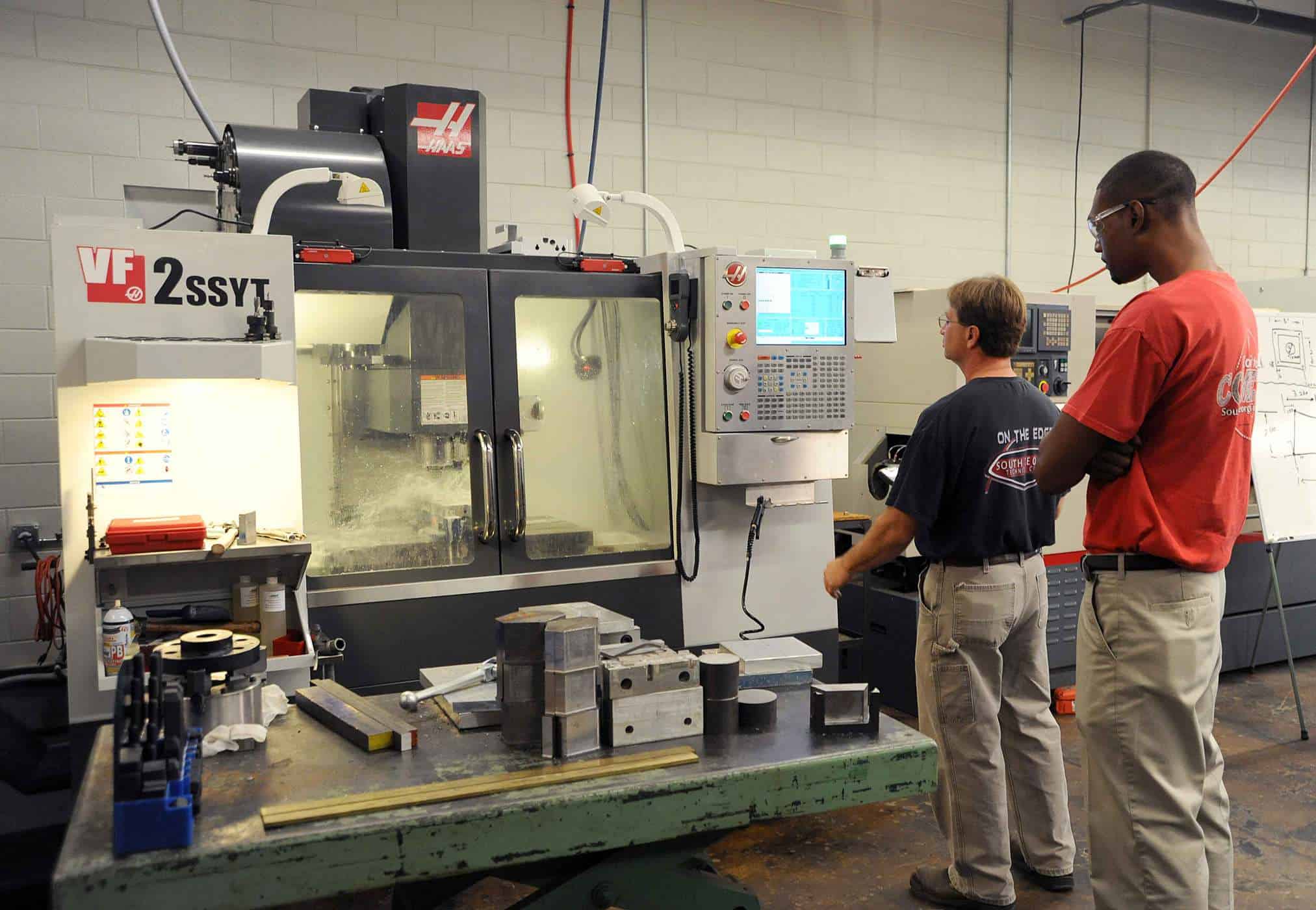All of the courses in the CAD Operator TCC program are embedded in the Drafting Technology diploma and degree programs. The CAD Operator TCC program endows students with the prospect to continue on the career pathway toward advancement in the drafting profession. Additionally, the program provides opportunities to upgrade present knowledge and skills or to retrain in drafting practices and software. This TCC could also serve if needed as an exit point for high school dual enrolled students needing a point of exit for employment purposes.
| Course | Credit Hours |
|---|
| OCCUPATIONAL COURSES | |
DFTG 1101 CAD Fundamentals Establishes safety practices as they relate to a drafting environment. Introduces basic CAD functions while presenting essential principles and practices for line relationships, scale, and geometric construction.
Required textbooks and materials:
- AutoCAD 2015 Tutorial - First Level: 2d Fundamentals, ISBN 978-1-58503-864-0, $53.76
2464 | 4 |
DFTG 1103 Multiview/Basic Dimensioning Technical Drawing I provides multiview and pictorial sketching, orthographic drawing and fundamental dimensioning methods necessary to develop 2D and 3D views that completely describe machine parts for manufacture using intermediate CAD software techniques.
Required textbooks and materials:
- AutCAD 2015 Tutorial - First Level: 2d Fundamentals, ISBN 978-1-58503-864-0, $53.76
2465 | 4 |
| Choose one of the following specializations: | |
| MECHANICAL DRAFTING | |
DFTG 1105 3D Mechanical Modeling In the 3D Mechanical Modeling course, the student becomes acquainted with concepts of the software related to Parametric modeling for mechanical drafting. The student will develop the skills necessary to create 3D models and presentation/working drawings.
Required textbooks and materials:
- Parametric Modeling with Autodesk Inventor, ISBN 978-1-58503-882-4, $47.95
2466 | 4 |
DFTG 1107 Adv Dimensioning/Section View Technical Drawing II continues dimensioning skill development and introduces tools for precision measurement and sectional views.
Required textbooks and materials:
- Parametric Modeling with Autodesk Inventor, ISBN 978-1-58503-882-4, $47.95
2467 | 4 |
DFTG 1109 Auxiliary Views/Surface Devel Introduces techniques necessary for auxiliary view drawings, surface development, and developing sheet metal parts. Topics include: primary auxiliary views, secondary auxiliary views, surface development, and developing sheet metal parts.
Required textbooks and materials:
- Parametric Modeling with Autodesk Inventor, ISBN 978-1-58503-882-4, $47.95
2468 | 4 |
| OR | |
| ARCHITECTURAL DRAFTING | |
DFTG 1125 Architectural Fundamentals Introduces architectural fundamental principles and practices associated with architectural styles and drawing. Fundamentals residential and commercial practices will be covered. Topics include: specifications and materials; architectural styles, construction drawing practices and procedures, dimensioning and scales.
Required textbooks and materials:
- Architectural Drafting and Design, ISBN 978-1-4018-6715-7, $84.95
2471 | 4 |
DFTG 1127 Architectural 3D Modeling In the Architectral 3D Mdeling course, the student becomes acquainted with concepts of the software related to Parametric modeling for Architectural drafting.The student will develo the skills necessary to create 3D models and presentation/constructions drawings.
Required textbooks and materials:
- Architectural Drafting and Design, ISBN 978-1-4018-6715-7, $84.95
2472 | 4 |
DFTG 1129 Residential Drawing I Introduces the essential skills necessary for assessing the expected materials, labor requirements and costs for given structures or products also students will be introduce to architectural drawing skills necessary to produce a basic set of construction drawings given floor plan information.Topics include: material take-offs; footing and foundation; floor plans; exterior elevations; site plans; and construction drawing techniques/practices.
Required textbooks and materials:
- Residential Design Using Autodesk Revit 2015, ISBN 987-1-58503-889-3, $34.53
2473 | 4 |
| *20 minimum semester hour credits required for certificate | |

